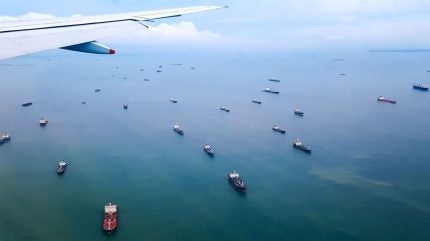
The maritime industry is looking to advance its decarbonisation efforts with the launch of the TwinShip project, an initiative sponsored by the European Union.
This project, which will run from 2025 to 2028, aims to support decarbonisation by building a new system to enhance data accessibility.
The goal is to aid smarter decisions for fleet operations and support the industry’s push towards reduced greenhouse gas emissions.
This project looks to provide dependable data on costs, performance, and emissions, enhanced by AI algorithms that analyse extensive real-world test data. This initiative will culminate in four pilot vessel demonstrations to validate the project’s outcomes.
Over a dozen entities, including technology and service providers, ship design companies, shipping companies, classification societies, ports, software developers, and research and academic institutions, are collaborating on TwinShip.
Their collective expertise will contribute to the creation of a Decision Support System (DSS), which will aid in planning machinery, propulsion, and energy-saving devices for newbuilds and retrofits.
Finnish technology provider Wärtsilä is part of the consortium, responsible for building this system.
With the 2023 IMO GHG Strategy setting a net-zero GHG emissions target by around 2050, TwinShip aims to establish benchmarks for the industry.
Access to reliable data and predictive insights is expected to optimise fleet efficiency, leading to better performance, cost savings, and lower emissions.
The company is not only investing in high-efficiency technologies but also aims to achieve carbon neutrality in its operations and offer a zero-carbon fuel-ready product portfolio by 2030.
The TwinShip project will leverage and expand upon Wärtsilä’s experience from previous EU-funded projects, such as SeaTech, CHEK, Green Ray, and Ammonia2-4, furthering the industry’s decarbonisation journey.



